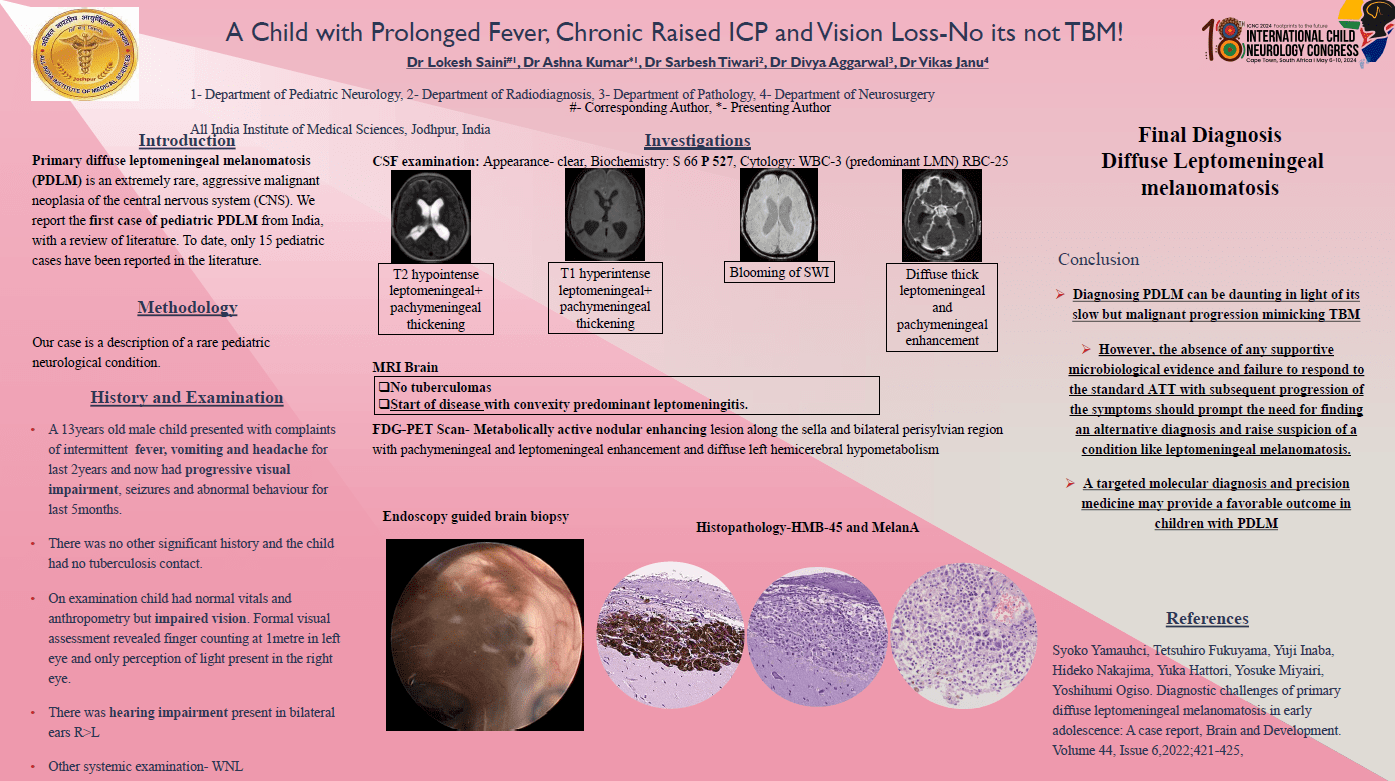A Child With Prolonged Fever, Chronic Raised ICP And Vision Loss: No Its Not CNS TB
Introduction: Primary diffuse leptomeningeal melanomatosis (PDLM) is an extremely rare, aggressive malignant neoplasia of the central nervous system (CNS). We report the first case of pediatric PDLM from India, with a review of literature. To date, only 15 pediatric cases have been reported in the literature. Case: A 12 years old male child presented with fever, vomiting, and headache for two months. Cerebrospinal fluid (CSF) examination was normal. MRI brain revealed hydrocephalus, for which antitubercular therapy (ATT) was started and external ventricular drainage (EVD) followed by ventriculoperitoneal (VP) shunt was done. Repeat MRI revealed a suprasellar lesion, nodular enhancement of cranial nerves along with dural enhancement of spinal cord with arachnoiditis, and long segment myelomalacia. Repeat CSF examination was negative for malignant cells. During biopsy, blackish dura with diffuse blackish deposits in ventricle were noted. Histopathological examination revealed tumor cells with intracytoplasmic coarse brown pigment melanoma, frequent mitotic figures, and immunohistochemistry (IHC) testing was positive for human melanoma black-45 (HMB-45) and MelanA, suggestive of PDLM. He expired four months after the diagnosis. Conclusion: Diagnosing PDLM can be daunting in light of its slow but malignant progression mimicking TBM leading to improper management. However, the absence of any supportive microbiological evidence and failure to respond to the standard ATT with subsequent progression of the symptoms should prompt the need for finding an alternative diagnosis and raise suspicion of a condition like leptomeningeal melanomatosis. A targeted molecular diagnosis and precision medicine may provide a favorable outcome in children with PDLM.
Lokesh Saini
AIIMS Jodhpur
India
Ashna Kumar
AIIMS Jodhpur
India
Sarbesh Tiwari
AIIMS Jodhpur
India
Divya Aggarwal
AIIMS Jodhpur
India

Ashna Kumar
AIIMS Jodhpur
India